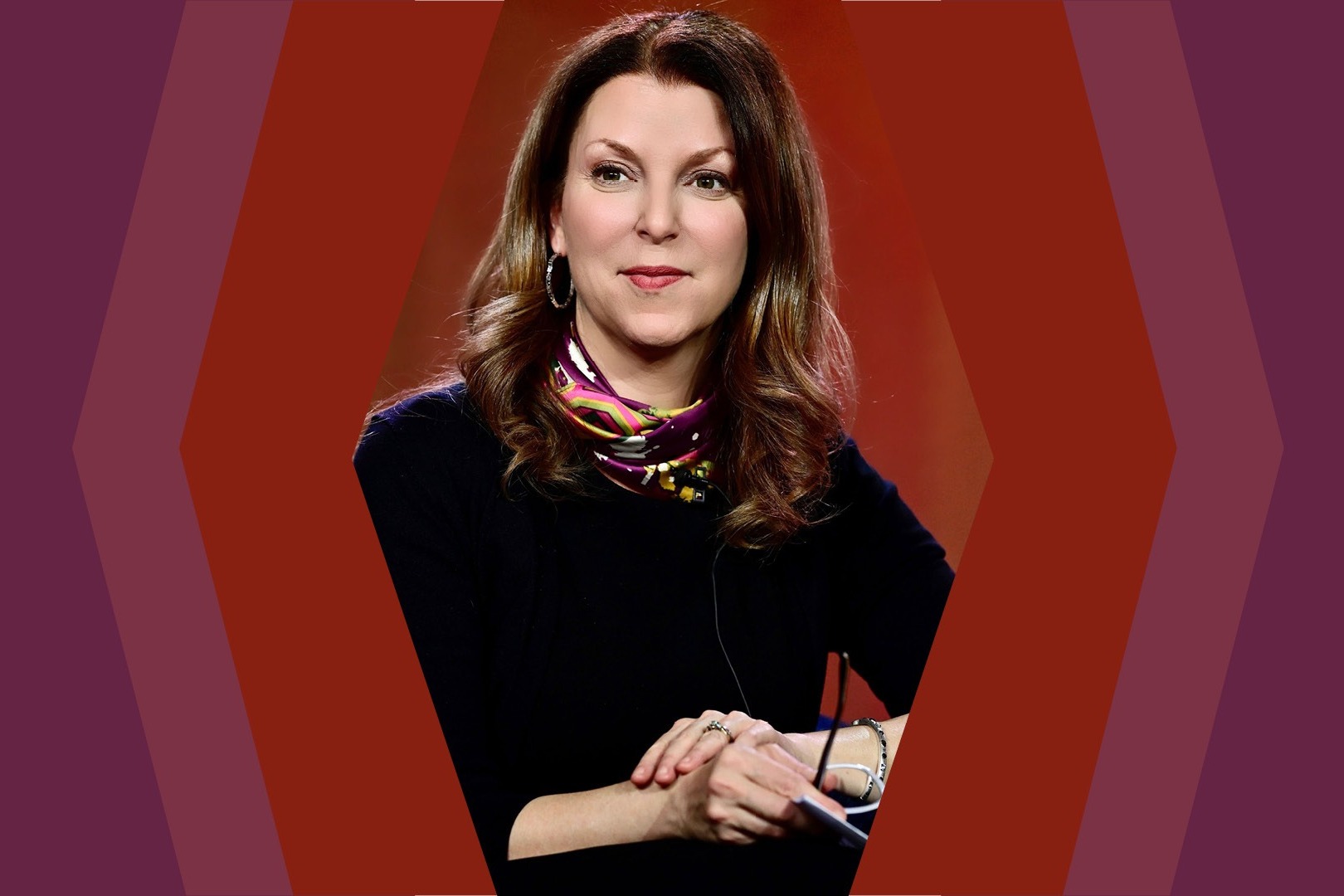Raney Aronson-Rath, editor-in-chief and executive producer of FRONTLINE, the award-winning PBS investigative documentary series housed at GBH in Boston, has been named journalist-in-residence at MIT’s Center for Constructive Communication (CCC). The Institute-wide interdisciplinary center based at the MIT Media Lab designs tools, methods, and systems that connect rather than divide people across political, social, and cultural boundaries.
As a journalist-in-residence, Aronson-Rath, a leading voice on the future of journalism, will expand upon her ongoing collaboration with CCC, where she has worked with researchers using an AI-powered tool to help map the information bubbles that stoke polarization into socio-political silos, and to come up with possible solutions to bridge increasingly dangerous divides.
“We are incredibly proud of Raney and the work she produces at FRONTLINE,” said Susan Goldberg, President and CEO of GBH, the nation’s premier public media producer. “She embodies the best of journalism – a commitment to telling the stories that hold those in power accountable. We hear a lot these days about how AI can hurt us. We are excited to see through her work with the Center for Constructive Communication how this powerful tool also can be used for good.”
One goal for Aronson-Rath, who will continue in her leadership roles at FRONTLINE, will be to help create tools for journalists and others that identify stories that resonate for one audience while remaining invisible to others. “Only by becoming aware of competing narratives – and understanding why and where they take root – can we begin to do the sort of reporting that holds the powerful accountable while also building shared truths,” said Aronson-Rath.
“Competing and false narratives can spread like wildfire,” Aronson-Rath continued, “and in the years to come, news organizations must work to understand why this is happening, who is most at risk, and how to confront misinformation, not just with the facts, but with compelling and credible stories that can help create a shared reality. This is an urgent challenge – perhaps the urgent challenge – for journalism today. As FRONTLINE celebrates its 40th anniversary, it seems an ideal time to find new and creative ways to be part of the solution, and I’m thrilled to be doing this at CCC.”
In Aronson-Rath’s initial collaboration with CCC, researchers tracked user engagement through tweets over a three-year period, working with FRONTLINE to build models that predicted the political diversity of its audience. This involved turning a lens on FRONTLINE’s own social media activity to analyze how the language used to describe and promote stories might be improved to help broaden FRONTLINE’s audience.
“We are so fortunate to have Raney’s expertise to help us fully understand the challenges we have identified – and those we have yet to identify – facing today’s journalists. Going forward we’ll be working with major public media organizations, which will be critical in helping us to shape our research in ways that will have the greatest impact for strengthening our increasingly fragile democracy,” said Deb Roy, MIT professor of media arts and sciences who serves both as CCC director and cofounder and chair of Cortico, a CCC-affiliated non-profit that works closely with the Center.
In acknowledging Aronson-Rath’s impact on journalism and the potential impact of her new appointment at CCC, Andrew Heyward, senior CCC advisor, former head of CBS News, and Research Professor at Arizona State University’s Walter Cronkite School of Journalism and Mass Communication said, “Raney is an accomplished filmmaker and news leader who thinks broadly and deeply about the most critical issues confronting not just journalism but society – and has the talent to do something about it. We are very lucky to have her as a journalist-in-residence; I’m just sorry we have to share Raney with her FRONTLINE day job!”
About Raney Aronson-Rath
Raney Aronson-Rath is the editor-in-chief and executive producer of PBS’s FRONTLINE investigative journalism series. Under her leadership, FRONTLINE has won every major award in broadcast journalism including News & Documentary Emmy Awards, the first Alfred I. duPont-Columbia Gold Baton to be awarded in a decade, and the series’ first-ever Peabody Institutional Award. The 2022 recipient of the New England First Amendment Coalition’s Stephen Hamblett Award and the 2019 Hearst Digital Media Lecturer at Columbia Journalism School, she is a member of the Board of Visitors for Columbia University’s journalism school, and serves on the Advisory Board of Columbia Global Reports. Aronson-Rath joined FRONTLINE’s staff as a senior producer in 2007 after producing notable FRONTLINE documentaries including News War, The Last Abortion Clinic, The Jesus Factor, Law & Disorder, and Post Mortem. She was named deputy executive producer by the series’ founder, David Fanning, in 2012, and then became executive producer in 2015. Prior to FRONTLINE, Aronson-Rath worked at ABC News and The Wall Street Journal. She earned her bachelor’s degree from the University of Wisconsin and her master’s from Columbia Journalism School.
About the MIT Center for Constructive Communication
Fostering collaborations across the MIT campus and beyond, the MIT Center for Constructive Communication (CCC), based at the MIT Media Lab, leverages data-driven analytics to better understand current social and mass media ecosystems and designs new tools and methods to foster constructive dialogue, listening, and bridging across divides. To achieve this, CCC brings together researchers in AI, computational social science, digital interactive design, and learning technologies with software engineers, journalists, political scientists, designers, and community organizers. An important aspect of the center is its commitment to design new models for more trusted and less toxic social networks.

